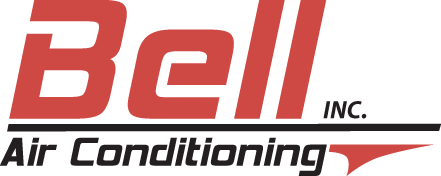
If you’re uncertain whether your Temple/Belton house has poor indoor air quality (IAQ), it likely does.
We are indoors a lot. In fact, we’re inside up to 90% of the time, according to the U.S. Environmental Protection Agency. And the air inside residences could be 2–5 times worse than outdoors, which can create long-term health problems.
Most Common Sources of Bad IAQ
We’ve made a list of the most ordinary causes of poor IAQ, the troubles they make and how you can remedy these indoor air pollutants. If you’re troubled by the air inside your home, we advise consulting with a pro like Bell Air Conditioning Inc about which solutions are best for your house.
Volatile Organic Compounds
Volatile organic compounds, or VOCs, are vapors released by everyday household items.
They’re found in paint and stains as well as:
- Furniture
- Carpet
- Building materials
- Cleaning products
- Cosmetics
- Air fresheners
- Candles
When these chemicals accumulate inside, they may irritate your eyes, nose and throat. They might also result in headaches and nausea. Regardless of whether your home is in a rural or industrial location, an EPA study found indoor levels of these fumes can be 2–5 times worse than the air outside.
Always follow the manufacturer’s instructions when using paint or cleaning supplies. Unlatching a window can help chemicals disappear faster.
Air purification systems can also make it better. This unit partners with your heating and cooling system to clean indoor air. When seeking a model, ensure it’s specifically made to wipe out VOCs.
Dust and Pet Dander
Dust and pet dander can trigger health problems like asthma and allergies, especially when it continuously gets moved by your house’s comfort system. While you can vacuum more regularly and get an improved air filter, an air filtration system may be a better match.
This equipment hooks to your heating and cooling equipment to give mighty filtration. Some models offer hospital-level filtration for getting rid of particles and bioaerosols.
Lasting Odors
New homes are tightly sealed to enhance energy efficiency. While this is good for your energy expenses, it’s not ideal for your IAQ.
Stale odors can stick around for a greater amount of time since your house is pulling in a smaller amount of fresh air. As keeping your windows open all year-round isn’t an option, here are two ways you can make your indoor air smell fresher.
An air purification system is put in your ducts to neutralize odors before they are redistributed. Search for one with a carbon filter and the capability to break down harmful VOCs. These systems can also help keep your household healthy by getting rid of most bacteria and normal allergy triggers like pollen and mold spores.
A ventilation system removes stuffy indoor air and replaces it with fresh outdoor air. There are two kinds of systems (heat recovery and energy recovery), so check with our professionals for more information on which kind is ideal for your home.
Uneven Humidity
It’s essential your house’s humidity keeps even. Air that’s too moist can cause mold, while dry air can lead to respiratory symptoms.
Our pros suggest 40–50% for ideal comfort. To keep yours steady, consider getting a whole-home humidifier or whole-home dehumidifier with your HVAC equipment.
Instead of having to pull a humidifier from room to room, this product delivers balanced humidity throughout your house.
Carbon Monoxide
Carbon monoxide is colorless gas you can’t smell. It occurs when there’s insufficient combustion in fuel-burning appliances, like gas heating systems, water heaters or fireplaces.
It poses an extreme health risk. In low levels, it can cause flu-like sickness like headaches and nausea. It may be deadly in large concentrations.
We suggest regular furnace maintenance to make sure your unit is running properly. This work allows our specialists to pinpoint issues before they start, including malfunctions that can lead to carbon monoxide leaks.
The best way to keep your residence free of carbon monoxide is to get detectors. These alarms need to be on each floor close to bedrooms and living areas.
Improve Your Home’s Air Quality with the Bell Air Conditioning Inc Specialists
Know that your home has poor air quality but not sure how to enhance it? Or unsure which option is best for you? Give our kind HVAC experts a call at 254-307-9572 or contact us online now. With free estimates and expert assistance, we’ll help you choose the right option for your home and budget.
